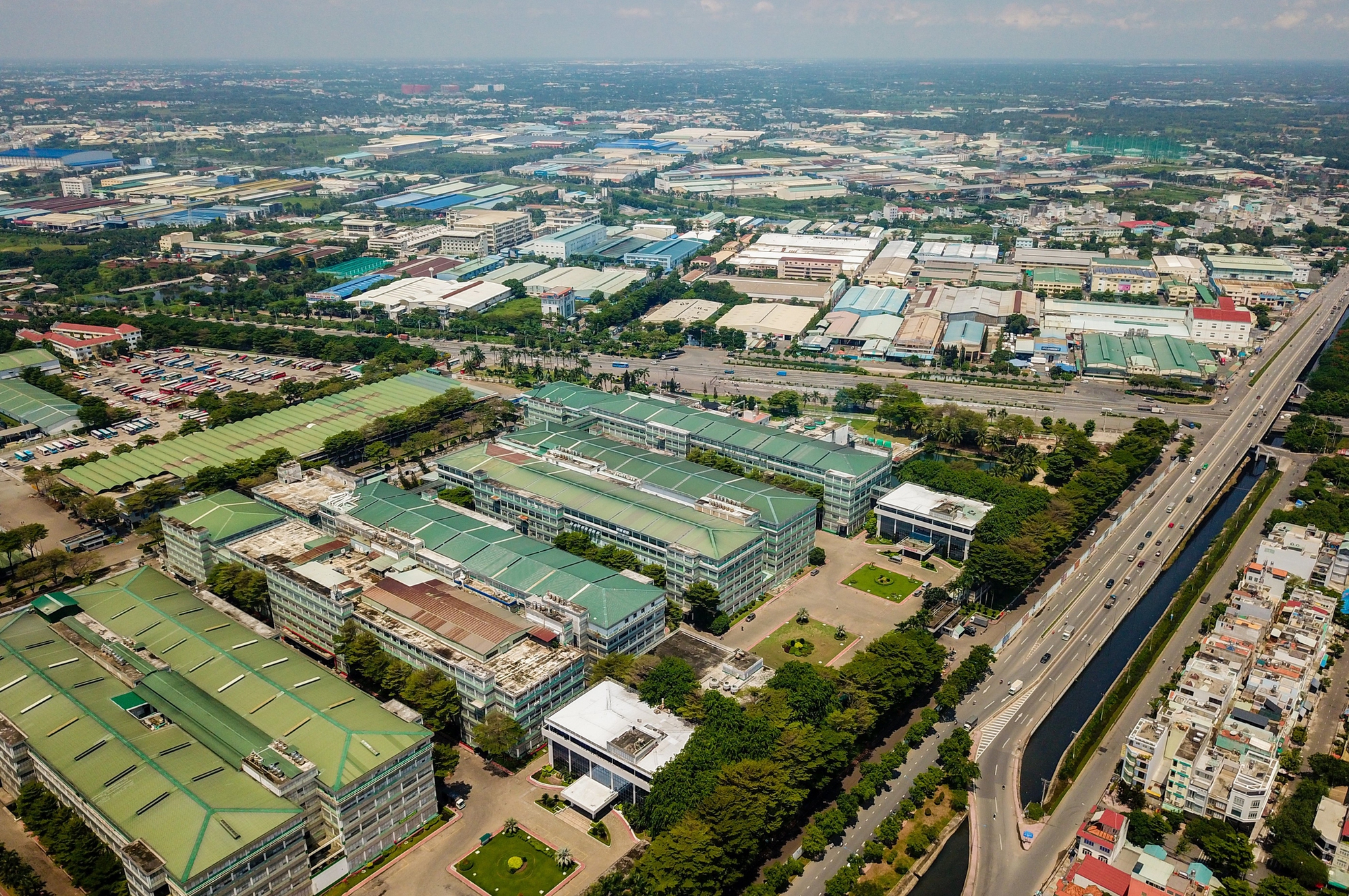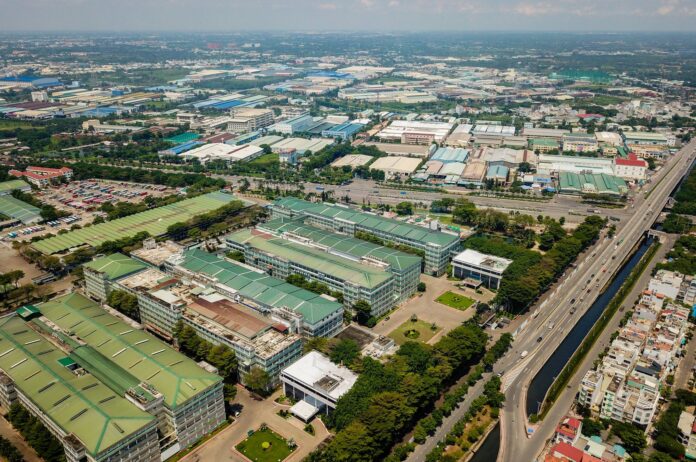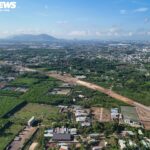On May 4-5, the Political Bureau issued Resolution No. 68-NQ/TW on private sector development, marking a historic turning point in the country’s economic thinking and policies.
Breaking Down Barriers
With a strategic vision towards 2030 and 2045, Resolution 68 not only emphasizes the crucial role of the private sector but also introduces breakthrough views and solutions to break down barriers, unlock resources, and motivate this sector to become a pillar of the socialist-oriented market economy.
One of the most groundbreaking views of Resolution 68 is recognizing the private sector as the “most important driving force of the national economy.” Previously, the private sector was considered merely a part of the economy and later defined as an important part. However, Resolution 68 elevates the status of this sector, considering it a pioneer in promoting growth, creating jobs, increasing labor productivity, and contributing to the industrialization and modernization of the country.
Currently, the private sector contributes approximately 50% of GDP, over 30% of the state budget revenue, and employs 82% of the labor force. This affirmation of its role not only eliminates long-standing prejudices but also boosts the confidence and motivation of private enterprises to thrive.
This view reflects a profound change in state management thinking, shifting from considering private enterprises as objects of management to partners in development, co-creating progress. The state commits to refraining from administrative intervention that contradicts market principles, while fostering a conducive, transparent, and equitable business environment. This significant step helps unleash productive forces, inspire creativity, and fuel the legitimate aspiration of Vietnamese entrepreneurs to prosper.
Resolution 68 emphasizes the need to eradicate prejudices against the private sector and affirms its importance in building an independent and self-reliant economy, linked with international integration. To materialize this view, the resolution mandates the legalization of policies, the synchronization of the legal system, and the removal of institutional barriers, especially overlapping regulations that hinder enterprises.
Another breakthrough is the shift from a “pre-inspection” to a “post-inspection” mechanism in enterprise management. Instead of prior inspections and licensing, the state will focus on post-operation supervision, thereby reducing administrative procedures and compliance costs. Resolution 68 aims to cut down at least 30% of time spent on administrative procedures, 30% of business conditions, and 30% of compliance costs by 2025. This is a strong commitment that enables enterprises to operate freely within the framework of the law.
Safeguarding the Freedom to Do Business
Resolution 68 pledges to protect the private enterprises’ right to own property, the freedom to do business, and the right to fair competition, as stipulated in the Constitution. Enterprises are free to operate in all sectors that the law does not prohibit and are not subject to discrimination compared to other economic components.
Notably, Resolution 68 expands the participation of private enterprises in strategic sectors such as defense industry, security, high-speed railways, urban railways, and energy infrastructure. This breaks down the “forbidden zone” barrier, as these strategic sectors were previously reserved for state-owned enterprises.
Additionally, Resolution 68 emphasizes refraining from criminalizing economic and civil relations. For economic violations, administrative, civil, and economic measures are prioritized, with criminal proceedings reserved for severe and intentional cases. This policy mitigates legal risks, fosters a safe business environment, and encourages enterprises to boldly invest and innovate.
Resolution 68 continues the spirit of Resolution No. 57-NQ/TW dated December 22, 2024, of the Political Bureau on breakthroughs in science and technology development, innovation, and national digital transformation. This resolution introduces robust incentives for private enterprises to engage in the digital economy. Investment costs in research and development (R&D) are tax-deductible up to 200%, motivating enterprises to adopt new technologies, artificial intelligence, and digital transformation.
Furthermore, Resolution 68 encourages enterprises to connect, share, and exploit data while improving data governance laws to ensure information security. This policy is particularly crucial given the limitations of Vietnamese private enterprises in technology and governance capabilities. By supporting small and micro-enterprises in accessing digital platforms, providing free accounting software, and offering governance training programs, the resolution enhances their competitiveness and ability to participate in global value chains.

Resolution 68 has introduced mechanisms to facilitate private enterprises’ access to land and production facilities, especially for small and medium-sized enterprises. Photo: HOANG TRIEU
Determination in Implementation
Resolution 68 proposes solutions to unlock capital for the private sector, including providing low-cost capital, tax incentives, and startup support for those who have worked in foreign-invested enterprises, leveraging their experience and connections. The resolution calls for the elimination of the lump-sum tax for business households by 2026 and the provision of free legal consulting and training for small enterprises.
Regarding land, Resolution 68 suggests mechanisms to support enterprises in accessing production facilities, especially for medium and small enterprises. These policies not only help enterprises expand their scale but also create a two-tier economic structure: large corporations leading from above and dynamic small enterprises and business households driving from below.
With these breakthrough solutions, Resolution 68 sets ambitious goals: By 2030, Vietnam aims to have 2 million private enterprises, and by 2045, this number should reach 3 million, contributing over 60% of GDP. To achieve this, the resolution calls for the development of private corporations with regional and global reach.
The groundbreaking views of Resolution 68 can succeed only if they are institutionalized and effectively implemented. In fact, just two weeks after Resolution 68 was issued, the National Assembly passed Resolution No. 198/2025/QH15 on special mechanisms and policies for private sector development. Subsequently, the Government issued Resolution No. 139/NQ-CP to implement the plan for realizing Resolution 198/2025/QH15.
These documents assign specific tasks to ministries, sectors, and localities for the immediate implementation of Resolution 68. This determination reflects the strong commitment of the Party and the State to bring the resolution to life.
Many observers consider Resolution 68 a “freedom manifesto” for Vietnamese entrepreneurs, marking a breakthrough era for the private sector. With its progressive views, the resolution not only addresses bottlenecks but also opens up new avenues for enterprises.
If effectively implemented, Resolution 68 will serve as a catalyst for Vietnam’s ascent towards prosperity, materializing the aspiration for a rich country and strong people, with democracy, equality, and civilization.
No Criminalization of Economic and Civil Relations: Experts Urge for a Necessary Step
“Deregulating and reducing the number of conditional business sectors is key to curbing over-criminalization. By simply deregulating one conditional business sector, numerous binding regulations and accompanying procedures can be eliminated,” stated the former Vice Chairman of the National Assembly’s Committee.
“The Chairman of Hoa Phat Group Emphasizes on Prioritizing Domestic Production: A Mandate for Government Projects”
“Mr. Tran Dinh Long, Chairman of Hoa Phat Group, has proposed that all public investment projects, such as highways, should have a minimum of 70% domestic content. This bold suggestion highlights the potential for local manufacturing and the opportunity to reduce reliance on imports. With a strong belief in the capabilities of Vietnamese industries, Mr. Long envisions a future where local products take center stage in national development, paving the way for economic growth and a more resilient Vietnam.”
A Southern Giant Eyes Northern Expansion with Land Acquisitions
“Vietnam’s leading real estate developer, Nam Long, has set its sights on expanding its reach to the northern market. With an ambitious vision, the company’s subsidiary, Nam Long ADC, is spearheading this endeavor by introducing an affordable housing project, marking their first venture into this region.”











































